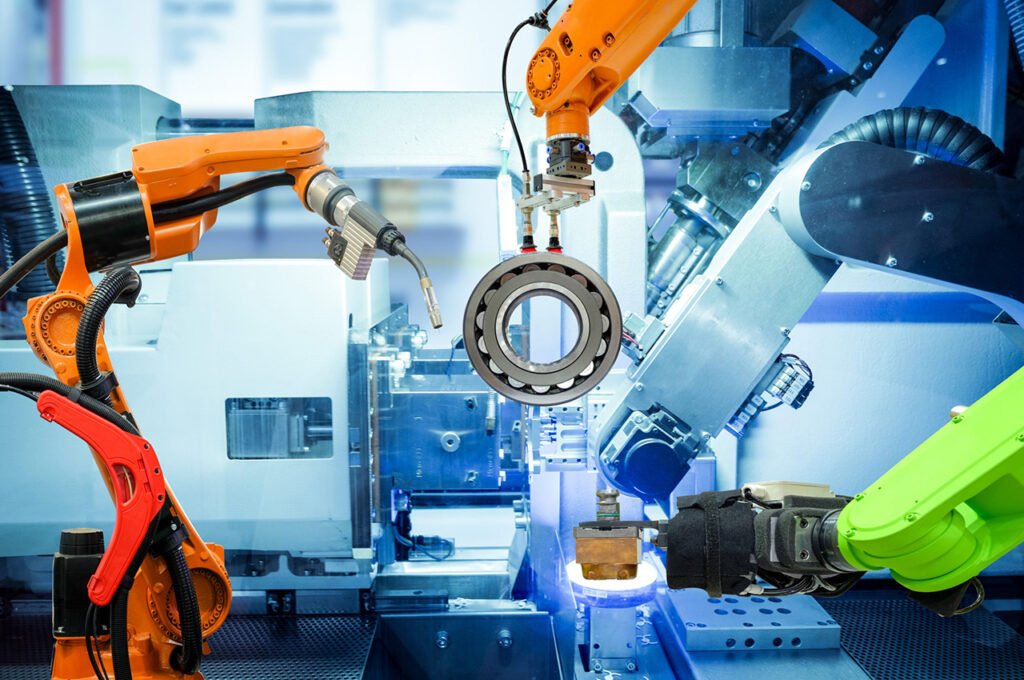The industrial machinery of components and machinery is a major part of the economy and can be responsible for the development of many different goods and services. This sector employs a significant number of workers, many of whom have an impressive level of knowledge and are paid more than the standard salary.
If you’re looking for a profession that pays well, then working in the field of industrial machinery and components is a sector to consider. We’ll take a closer review of the most lucrative jobs in this sector and offer some recommendations to help you land one of the lucrative positions.
What’s Industrial Machinery?
Industrial machinery encompasses any kind of machine or device used to satisfy industrial requirements. It encompasses a range of equipment, from hand-operated devices to high-end heavy-duty machines.
Some examples of machinery used in industry include:
- Robots that automate assembly lines similar to those employed in the auto industry
- Machine tools, such as lathes and milling machines
- Conveyor belts are used to move material between factories
Let’s look at some of the highest-paying jobs in oil and natural gas extraction.
Machinist
The first thing we’ll take a look at is that of Machinists. Machinists have to be accountable to manage many different machines, like lathes, milling machines, and drill presses. Machinists typically begin their work by examining the machines they’ll be using and making sure they’re functioning properly. They then begin with the machine and begin creating components or parts according to the instructions given by their supervisor.
Operational managers
The second position available on our list of job descriptions is the Operations Manager. Operations managers are responsible for the day-to-day running of a manufacturing plant or factory. They are accountable for the production process and quality controls in addition to the receiving process and shipment. Operations managers also manage the human element of the process which includes hiring and firing and coordinating the schedules for employees and handling issues of employees.
Operations managers must ensure that the items they create meet the specifications that have been specified and are produced quickly and efficiently process. They should also ensure that their employees follow security procedures and are adequately trained.
Crane and Tower Operators
Operators of towers and cranes are responsible for the operation of various kinds of cranes and towers. They’re a stunning view of a cityscape. They are on top of structures, typically carrying huge loads. They are responsible for constructing and maintaining high-rise structures, such as bridges and skyscrapers.
Tower operators work with various cranes, including derricks and jibs, as well as Gantry cranes. They utilize cranes that lift and move objects. Tower operators are require to control the movements of cranes precisely and communicate with the workers at ground level.
Pipefitters
Pipefitters are responsible for the maintenance and installation of pipes that carry liquids or gases. They are responsible for setting up pipes in a variety of locations, such as factories industrial buildings, and power plants. Pipefitters must be able to comprehend blueprints and follow directions with attention to detail. They should also use many different tools such as saws, wrenches as well as welding tools.
Pipes are utilized for nearly everything around the globe in the present. From the pipes that transport water to our homes, to pipelines that carry natural gas to stove pipefitters make sure that these vital appliances are properly installed and working properly.
Industrial Machinery Mechanics and Maintenance Workers
Every day you may not notice the devices that help you in your day-to-day life. However, someone has to take care of these machines, and this is where technicians from the industrial sector and maintenance assume the responsibility.
Maintenance technicians and mechanics are responsible for the maintenance of different equipment, including pumps, engines, and conveyor belts. They have various tasks that include inspection of machines, repairs of components in machines, and also replacing worn or damaged components.
Locomotive Engineers
Engineers are the ones who operate locomotives. They are massive machines utilized to move trains. They are responsible for the safety of the crew as well as passengers as well as the cargo that is being moved. The engineers of locomotives must adhere to the guidelines with care and keep in touch with dispatchers.
The everyday life of the engineer for locomotives is built around the running of the engine. They have to be able to follow instructions precisely and stay in constant contact with the driver. Telecom engineers are require to be able to solve any issues that may arise during their shifts.
Industrial Designers
Industrial designers create the products we use daily. Designers design everything from cars and kitchen appliances. Industrial designers need to come up with new ways to develop new ideas. They must also stay within their budget and meet deadlines.
Their influence on our lives isn’t apparent but is evident to the extent that they are. The majority of items that you use daily were design by an industrial designer.
Industrial designers’ jobs revolve around creating products. However, they must come up with innovative ideas and develop innovative concepts. They must also be competent in managing budgets and sticking to deadlines. Industrial designers typically hold the qualifications of a bachelor’s degree in industrial design.
Trending Blogs: what do public utilities jobs pay.
